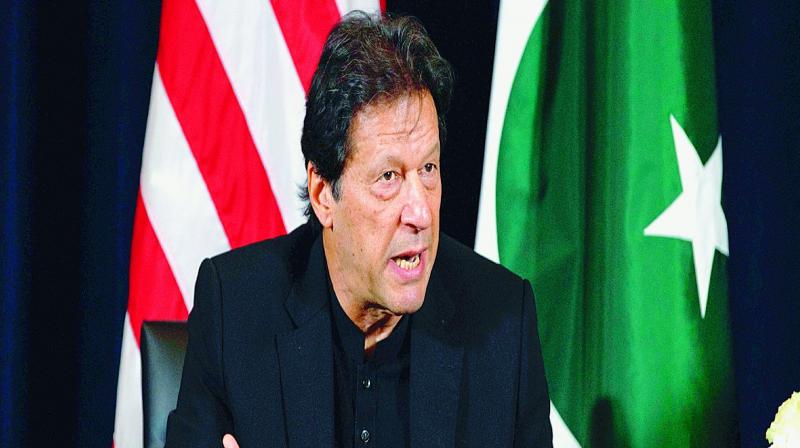Why only bothered about Muslims in j&K and not in China: US to Pakistan
 WASHINGTON: In a snub to Pakistan Prime Minister Imran Khan, a top US diplomat on Friday questioned why Mr Khan was not speaking out about China, which has detained an estimated one million Uighurs and other Turkic-speaking Muslims.
WASHINGTON: In a snub to Pakistan Prime Minister Imran Khan, a top US diplomat on Friday questioned why Mr Khan was not speaking out about China, which has detained an estimated one million Uighurs and other Turkic-speaking Muslims.
Amid increased tensions between India and Pakistan after New Delhi scrapped Article 370 of the Constitution, which grants special status to Jammu and Kashmir, Alice Wells, US Acting Assistant Secretary for South and Central Asia said Mr Khan’s comments on Kashmir were unhelpful. “A lowering of rhetoric would be welcome, especially between two nuclear powers.”
She also questioned why Mr Khan was not also speaking out about China, which has detained an estimated one million Uighurs. “…I would like to see the same level of concern expressed also about Muslims who are being detained in Western China, literally in concentration-like conditions.
And so being concerned about the human rights of Muslims does extend more broadly than Kashmir, and you’ve seen the administration very involved here during the UN General Assembly and trying to shine a light on the horrific conditions that continue to exist for Muslims throughout China,” she said. China is a major diplomatic and economic partner of Pakistan.
Mr Khan, asked about the Uighurs at a think tank on Monday, declined comment, saying that Pakistan had a “special relationship” with China and would only raise issues in private. Rights groups and witnesses say that China has been trying to forcibly stop Islamic traditions and integrate Uighurs into the majority Han population. China says it is providing vocational training and discouraging extremism.
US sought to use the annual United Nations summit to build up international pressure on China over its treatment of the Uighurs. The State Department had organised an event on Tuesday to highlight the plight of Uighurs in China.
The conference was held on the sidelines of the General Assembly to garner support “to demand and compel an immediate end to China’s horrific campaign of repression,” John Sullivan, the US’s second-highest diplomat, said. “We cannot be the only guardians of the truth nor the only members of the international community to call out China and demand that they stop,” Mr Sullivan added.
On Tuesday, US President Donald Trump also fired several shots across the bow of the fellow Security Council member, moving beyond his typical attacks against China on international trade. “How China chooses to handle the situation will say a great deal about its role in the world and the future,” the Republican tycoon added during his third appearance at the diplomatic forum in New York.
“I would like to see the same level of concern expressed also about Muslims who are being detained in Western China, literally in concentration-like conditions. And so being concerned about the human rights of Muslims does extend more broadly than Kashmir, and you’ve seen the administration very involved here during the UN General Assembly and trying to shine a light on the horrific conditions that continue to exist for Muslims throughout China,” Wells was quoted as saying by news agency PTI.
China is an all-weather ally of Pakistan, especially ever since President Donald Trump has cut down aid to its erstwhile partner during the cold war era and US-Pakistan relations have soured due to reasons ranging from terrorism to its diplomatic proximity with China.
According to a New York Times report, there are presently 22-23 million Muslims, a minuscule minority in a country of 1.4 billion. Among them, the Hui and the Uyghurs comprise the biggest ethnic groups. Uighurs primarily live in Xinjiang, but the Hui live in enclaves scattered around the nation.
China has consistently denied any mistreatment of Uighurs in what it calls vocational training centers, which it says have been extremely successful in combating extremism and violence. Hundreds have died in unrest in Xinjiang in recent years, blamed by Beijing on Islamists and extremists. Rights groups and exiles say the violence is more a reaction against China’s suppression of the Uighur people.
(With inputs from Reuters)

